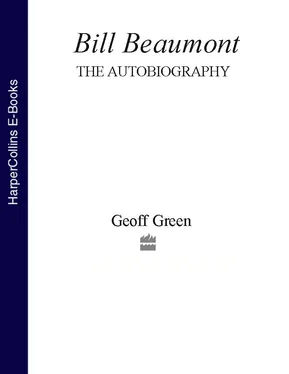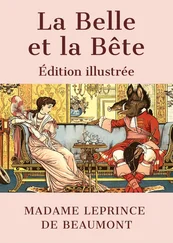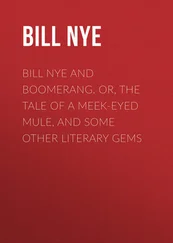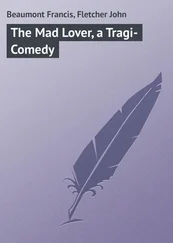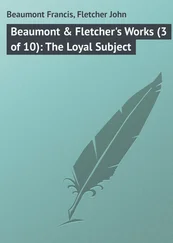I felt it important to have Brian with me because he was Chairman of the RFU and his views on the issue were very much in line with my own. I drove to Glasgow but Brian flew, Allan Hosie picking him up from the airport. We all met in Allan’s office and, because I had told officials at Twickenham what we were doing, the telephone lines had already been working overtime. In the end we found enough common ground for Allan to reverse a decision that I felt should never have been made. I had known Allan a long time and disagreed with him on that occasion, believing his action to have been a bit over the top. I suppose the powers that be wanted to force the issue by banning us; they certainly succeeded if that had been the intention.
As a result of our deliberations we had to make concessions and didn’t end up with as big a slice of the financial cake as I felt we were entitled to as the biggest rugby-playing nation in the competition. In that situation it wasn’t equitable to have equality. That may sound double-Dutch but our share of television money has to be spread much farther because we have many more players and clubs to support than the other nations. Also, more television sets are switched on in England than anywhere else when the Six Nations swings into action and I will continue to fight for a better deal in future although I will do so sitting around a table rather than taking to the trenches.
So, a form of peace prevailed, although the whole thing could have been handled rather better by all concerned. Whilst the episode didn’t reflect well on England, it didn’t reflect too well on our neighbours either at a time when the leading nations in the northern hemisphere should have been pulling together to turn Europe into the dominant force in world rugby rather than continually hanging on to the coat tails of the only three nations to ever win a World Cup: Australia, New Zealand and South Africa.
From a personal perspective I’m delighted that my initiative helped to keep England in the Six Nations without a courtroom battle that would have lined the pockets of the lawyers if nobody else, although I did see a certain irony in finding myself in the role of peacemaker for an organisation that had once kicked me into touch too.
Being banned had become something of a habit because, under the archaic amateur laws that prevailed until recently, my reward for leading England to a first Grand Slam in the Five Nations for 23 years, back in 1980, was to be outlawed for having had the audacity to retain the proceeds of a book written after injury had forced my premature retirement as a player. I joined a long line of well-known players who were denied the opportunity to put something back into the game because they had cashed in on their fame, to lesser and greater degrees, after hanging up their boots. Some, who had sacrificed so much during their playing careers, hardly benefited at all financially but still paid a heavy price by being outlawed. Many, like myself, felt very hurt at being treated in that way. I’m sure I speak for most when I say that we never even thought of being paid to play for our country. It was deemed a great honour to be selected and I would have paid the RFU for the privilege of donning the England shirt and taking the field at Twickenham, walking all the way from my Lancashire home if necessary.
Fortunately, the wind of change finally blew through rugby union and players like my friend Fran Cotton and I, formerly banished, were welcomed back into the fold. We have since thrown ourselves into administration of the game with the same enthusiasm and dedication we showed as players and were both involved in the creation of Club England, the arm of the RFU that has laid the foundations for what I am sure will be a great future for our country on the international stage.
Perhaps if we had been able to stay in the game after injury brought our playing careers to an end we might have helped to prevent England, the country that gave the game to the world, becoming so distrusted. It is bad enough that everybody wants to beat England; our scalp is more prized than that of any other country, with a passion. But it saddens me that the word of an Englishman is no longer held in the high regard it once was. That was brought home to me very forcefully when, as a member of the Six Nations Committee, I was a candidate to take over the chairmanship when Allan Hosie stood down. It was a role I felt eminently qualified to take on. I had captained my country for several years, led the British Lions in South Africa in 1980 and had fought to preserve the viability of the Six Nations – a tournament that would lose much of its appeal without England’s involvement. Competing against me for the position was Jacques Laurans from France. He is a nice man and I have no beef with Jacques (if the French will pardon the expression) but I felt I had better credentials to take on the job. So the show of hands around the table felt like a stab in the back as Scotland and Ireland, in particular, combined to ensure that I didn’t win the vote. I did have the support of the Welsh representatives but I had no illusions about how England was regarded after a display of tactical voting with the sole intention of keeping English hands off the reins.
There is no doubt that the deep wound, opened by the bitter row over television money, had continued to fester, as was made plain to me after the meeting when I talked to the two Irish representatives, Syd Millar and Noel Murphy. When the British Lions toured South Africa in 1980, with me as captain, Syd went as manager and Noel as coach. Although we didn’t win the series the three of us had worked very well together as a management team and I regarded them both as good friends. I still do. But they had been mandated by the Irish RFU to support Jacques and, when I asked why they had voted against me, the explanation was simple. ‘We trust you Bill but we don’t trust England.’ So, despite our friendship, I was guilty by association of a crime they clearly felt very strongly about. I was an Englishman.
So, in a few short years, I had been turned away by England after leading my country to overdue success and rejected by friends within the international community for no other reason than my nationality. Both were bitter blows, but I didn’t shun England when they invited me back into the fold a few years ago and I won’t turn my back on our Celtic neighbours either because I believe very strongly in the Six Nations Championship and have established close friendships over the years with players and officials from the three other home countries.
There was a certain irony in the vote for chairmanship of the Six Nations Committee being taken in Dublin. I have had three major disappointments in the Irish capital: it was there that I suffered defeat when I was first capped by England, there that I failed to secure chairmanship of the Six Nations, and there that the vote was taken this year to grant the 2007 World Cup to France rather than England.
I was disappointed that the exciting English concept of a 16-team tournament, backed by a Nations Cup for a further 20 countries, wasn’t adopted. The formula would have generated a lot more money, with the extra revenue enabling the Nations Cup to take place alongside the main event and enabling developing rugby countries to immerse themselves in the atmosphere of a World Cup. The English format allowed for a Super Eight play-off that would have given another chance to countries that lost a game in a hard pool.
It was not to be and, whilst it will take time to heal the wounds, we will gain nothing from remaining at loggerheads. We should all be working together to develop and improve rugby in the northern hemisphere, both in domestic and international competition, and England has a great deal to offer in that respect, having set the standard in recent seasons. And, by being completely open with our neighbours, we will hopefully regain their respect.
Читать дальше
